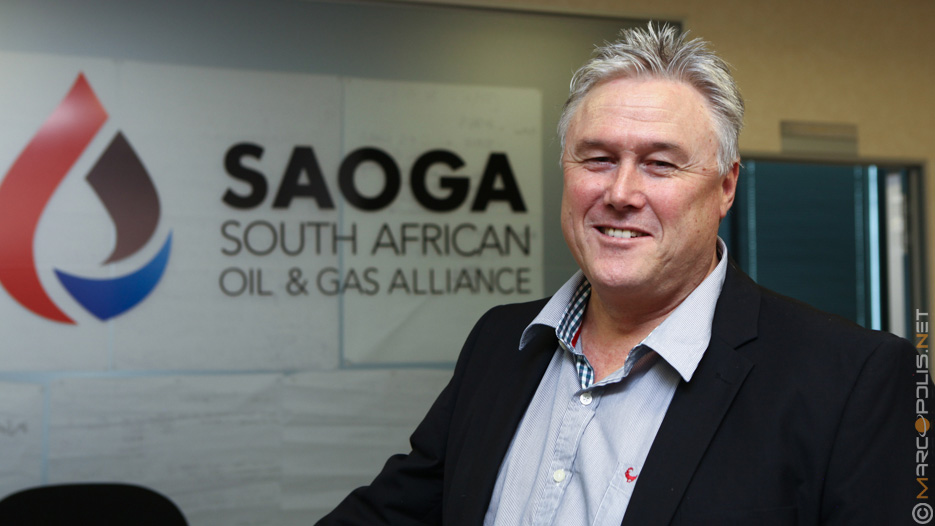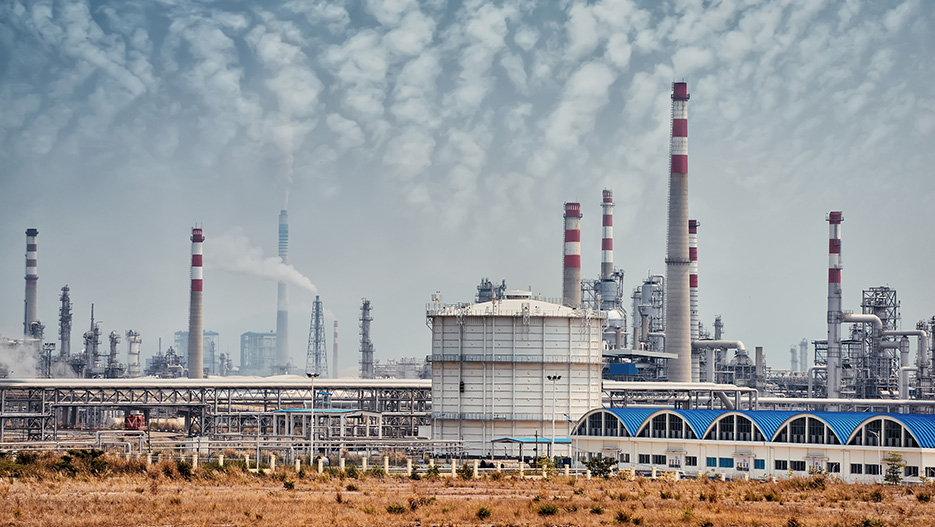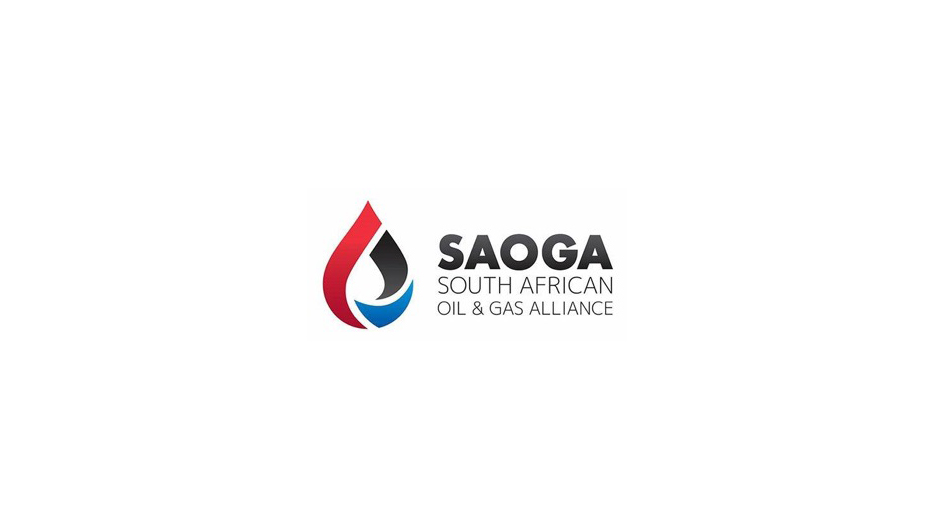Forging the Growth of the Oil & Gas Industry in Sub-Saharan Africa – SAOGA
“What we are looking at now in the short term is the LNG-to-power opportunity.”
Interview with Niall Kramer, CEO of SAOGA

Increasing the presence of foreign upstream and midstream companies in South Africa is a key priority for SAOGA. Tell us about some of the recent successes you have had in attracting them?
Recently the oil price has moved from well over a hundred dollars a barrel down to approximately forty dollars a barrel beginning April. Whereas in the past we would have been trying to capitalize on rigs coming past the Western Cape and the Eastern coast going for servicing or maintenance a lot of that business is simply just not there anymore. What we are looking at now in the short term is the LNG-to-power opportunity. That is going to be the next big opportunity for Southern Africa in terms of upstream oil and gas, especially in the Oil & Gas services sector where we operate. Three plus GW of power have been formally and publicly announced by the minister to be shipped into South Africa to be landed at three ports. We do not yet know what the sequence of those landings will be and what the sequence of the infrastructure development will be. What is happening right now is that we have an independent power procurement program for gas that is in development, very much like the renewables program which was so successful over the past five odd years. That has driven transparency up and the price down very significantly and the market has been very satisfied with that pricing and now that has been transferred into the gas market. Right now as we sit here we don’t know yet what will be in those tender documents. We are following that space very closely and that is where we are looking for the services opportunities for our members.
Do you believe that there is currently sufficient international awareness of the oil and gas industry and its potential for development in South Africa and if not what will SAOGA do to raise its profile?
There’s no question that there’s interest and knowledge of oil and gas in Southern Africa. You might have seen over the past week that up the east coast of Africa in Tanzania there was yet another large find by a Dubai company. There have been very significant finds off the coast of Mozambique. In two large basins there have been finds off the West Coast of Africa and all of the blocks around the South African coast as well as some blocks onshore are under licence or application. So there is a very well entrenched interest. The issue at the moment is that we have an opportunity now because the price is low so we have an opportunity to do really thorough mapping of the services opportunities and develop a really thorough understanding. We can push contracts really hard. On the one hand people might say that a low price environment is not good for the industry and clearly it isn’t in many cases, but it does give us an opportunity to consolidate, take a breath and do better analytical work and in the short term the opportunity we have identified is the LNG-to-power opportunity. Now the other opportunity of drilling, exploration and longer term potential production hasn’t gone away. It’s just not in our short term horizon.

So oil and gas now form part of the ocean industrial policy action plan as a result of some of the work undertaken by SAOGA. What are its key tenets as they relate to the country’s expansion plans and the vision for South African upstream and midstream oil and gas sector?
The gas industrial policy unit is looking at how gas can be used in the economy outside of power. South Africa is driven by a need for feedstock and for electricity and that is a given. That is what’s driving the importation of LNG. However adjacent to that is another big opportunity to use gas to drive economic growth via those three nodes which would be Saldanha Bay, Richards Bay and Coega. The precise timing is not yet clear. But the opportunity is there for additional growth such as an industry that is already in the industrial development zone area or considering going into that general area or in the near vicinity. These could use gas for gas to liquids for transport, fuels for fertilizer or for plastics, steel, cement or a host of industries. There is any number of industrial uses that would become evident over the longer term but because we now have a lower price environment we are able to do more of the analytical work to look at what policy would drive the bringing of that industry into the area and making it more viable for them.
Of course with Sasol, that gives South Africa world leading cutting edge technology in the GTL space. Is that correct?
Absolutely. Sasol is one of the global leaders in that space and Sasol are also on our industrial policy group as an SA Champion.
What we are looking at now in the short term is the LNG-to-power opportunity.
South Africa is geographically and politically well positioned to be a base for supplying sub-Saharan African oil and gas as well as any associated projects. Given recent successful exploration in the region how well placed do you think South Africa is to serve as a permanent hub for providing services and expertize for oil and gas along the entire Atlantic seaboard?
It is extremely well positioned to do that. Geographically it’s on very strategic sea routes. It’s in the European time zones. We have strong air connections into the globes major oil and gas hubs. We have a very well developed downstream industry here as well as terminalling industry and the midstream is well established. We’ve got petrochemicals as well. There is deep expertise but aside from that the bigger opportunity is longer term where there is potentially gas and oil in the basins and in the reserves and that has yet to be established. The Orange basin is one of them and that is a deep water opportunity but there are others off the east and south coast and then given the quantity of finds that there have been further up the east coast around Mozambique, Tanzania and further up the west coast it geologically seems to be promising and sensible and likely that there would be something here. But we have to find that. So the exploration has to pick up to do that.
Do you believe that there is buy in from the highest levels of government to ensure that the plans under operation Phakisa and Khulisa are successful?
I believe that this opportunity has been well discussed and don’t forget that South Africa is driven by a need for electricity so we have had issues around the availability of electricity and gas is one of the feed stocks that could go into the driving of electricity at significantly reduced carbon load. So yes for both programmes the economic, skills, services opportunities are well recognised and that’s why we have programmes to accelerate and access the opportunities.
South Africa is now also a very significant supplier of services and equipment to both East and West Africa. To what extent would you say there are sufficient expertise and a critical mass that has been reached in terms of the overall upstream value chain?
In terms of the critical mass I think that is where the opportunity is for the lower price. We can now start mapping what kind of skills will be required and in what time frame in a fairly granular way. Right through from artisans’ skills, which we at SAOGA do a lot of development in, through to tertiary level skills and the higher order engineering skills. After mapping those we would need to put our detailed plans in place and look at what the deficit is in terms of training and infrastructure to deliver those skills over time. A couple of exercises have started in that regard and those will be on-going. But it would be true to say that we have a serious need of skills which again gives us the opportunity to develop those skills in an orderly way. SAOGA has well recognised expertise in delivering this.

Are you referring to higher geographic surveying?
I am referring to seismic surveys, to geological skills, to petrochemicals skills as well as to artisan skills. From welding to boiler making and to electrical skills. There’s a host of skills that we need to map in a detailed manner and see what we are likely to need in each location over the longer term. One of the bigger exercises is called project Phakisa. It’s a government intervention that has a number of work streams and ours focuses on delivering the economic opportunity from the oceans from Oil and Gas. In other words, what economic opportunity is available in the oceans that can be capitalized on and oil and gas is very much part of that. Within Phakisa there is a skills team that SAOGA actively participates in. We are active in the broader mapping of those skills but in the short-term we would need to start mapping those into LNG and what the LNG-to-power opportunity is going to be.
South Africa currently accounts for only a miniscule percentage of world production and reserves 0.22% for oil & with just 0.001% of proven oil reserves and 0.03% of sub-Saharan gas production according to Wikipedia. Yet there have been significant oil & gas discoveries in the region, so what is your expectation in term so of the growth in production and reserve numbers in the coming years? Is it expected to grow significantly?
I believe that the growth is going to be significant. Prices right now are low but the world is going to need power into the future and the estimates that are widely accepted across most of the major companies and agencies who look at energy requirement into the future all broadly say that we will need something like double by the middle of this century. The question then becomes what kind of energy do you produce and how do you make that. Clearly renewables are going to be part of that but hydrocarbons are very much going to be part of that mix as well.
South Africa doesn’t really have significant proven oil and gas reserves as yet. Historically it has produced a lot of its oil and gas from coal and other imported crude oil as well. Given the abundant coal resources in the country and given the decline however as well as the relative costs involved in coal produced electricity in both financial and environmental terms, how do you see South Africa beginning to diversify its energy mix and how do you think this process will play out?
The first step has been announced. That will be the three plus GW of power that will be imported as LNG. But prior to that there has been big diversification into renewables with wind and solar. Coal is likely to remain as a significant part of that mix. South Africa has a lot of coal and it’s relatively cheap but the gas opportunity in terms of the switch on ability in the power stations is that you could switch it on very quickly. You don’t have to wait for it over a long time. Gas will reduce intermittency and it clearly will be part of that mix.
South Africa has to date issued some 20 offshore exploration licenses across the Orange basin, Bresdasdorp Basin and Tugela Basins, do you believe that this offshore exploration will prove to be successful?
I certainly hope so. Nobody would go out and say it’s a done deal until it actually is a done deal. That’s why it’s called “exploration”. You are going to find out something that you don’t know. Having said that, given the other indicators such as geological surveys and similar finds in the region it is highly likely that we will be successful but nothing is certain until it is certain. Two years ago nobody was saying that the oil price was going from over a hundred down to as low as the thirties and similarly nobody is going to say with absolute certainty in the Bredasdorp, Tugela or other basins you will find X amount. The modelling suggests that there is gas and oil in place but that needs to be proven. We also need to see if it is economically viable and then it needs to be commercialized.
Could you give us your projections or predictions on what you think some of the significant changes will take place in the South African upstream and midstream sector over the next twenty years?
I predict that there will be a significant uptake in the amount of gas used for power and for industry. I think that will drive growth, provide diverse feedstocks and help to reduce the carbon emissions. It’ll certainly play a role in the greening of the planet efforts. My other prediction is that this is not going to be an “either or” game. It’s not going to be a case of; this form of power or that form of power. It’s going to be an “and and” game. It will be a case of; this form of power and this form of power. In a developing country like South Africa we need to get energy to places that haven’t had reliable energy in the past. So there is a massive development role for energy. People are crying out for power. Some parts of the country in the middle of winter are really cold. Staying in the townships in a tin shack in the middle of winter is not a very pleasant experience and this is potentially an opportunity to drive the economy and to bring in more stable, predictable and potentially more reasonable power to many more people. Overall my prediction is that there will be many forms of power. They will be mixed and that mix will differ by geography and by location.
Given your previous role managing shell upstream BB stakeholder relationships in the Karoo shale gas projects and given how much international interest this rather unconventional source is generating do you believe that the shale gas in the Karoo basin has the potential to transform the nation’s energy mix and make a significant contribution to South Africa’s economy overall and even to be instrumental in meeting South Africa’s growing energy need? Keep in mind that this could give South Africa the eighth largest technically recoverable shale gas resources globally. It’s highly significant.
I think it is possible that it could do all of those things. It could transform the country. It could provide the energy needs. It could contribute to economic growth however it’s very important to know that it still needs to be proven. It has not been proven yet. People need to get into the field and do the initial drilling so that they can have an empirical basis with actual facts in a relevant geology on which to make the predictions about future successes. It has not been proven yet but is it possible? Yes it is possible.
How long before that will be definitively established?
Somewhere between this and this. The reality is that it is not as simple as saying it’s going to be two years or three years or five years. The issue is what is going to be found? So if a large find were to be found close to transport routes and close to power lines and there was an economically viable way of building a gas power plant in that area then that would be very significant. At the moment it might not be on everyone’s minds as the focus is on the LNG-to-power opportunity but from the SAOGA point of view we are definitely thinking of all those possibilities down the line because as gas is imported into the economy and used into power and into industry over time, a gas economy can be created, then if it is proven that there is gas offshore or in the Karoo then that becomes an indigenous feedstock that we as South Africans have some control over. It changes the reliability on world markets which we have at the moment and we then have the opportunity to use our own feedstock without all of the vagaries of international pricing and availability. However if policy at the time drives that gas to offshore markets then because this is an international game, pricing will be on the basis of the international markets. Though I think you would find that most South Africans would prefer that, to the extent the economy can absorb and use it, any power, juice, gas or oil that is found in South Africa remains in South Africa and drives this region’s economy.
FAIR USE POLICY
This material (including media content) may not be published, broadcasted, rewritten, or redistributed. However, linking directly to the page (including the source, i.e. Marcopolis.net) is permitted and encouraged.